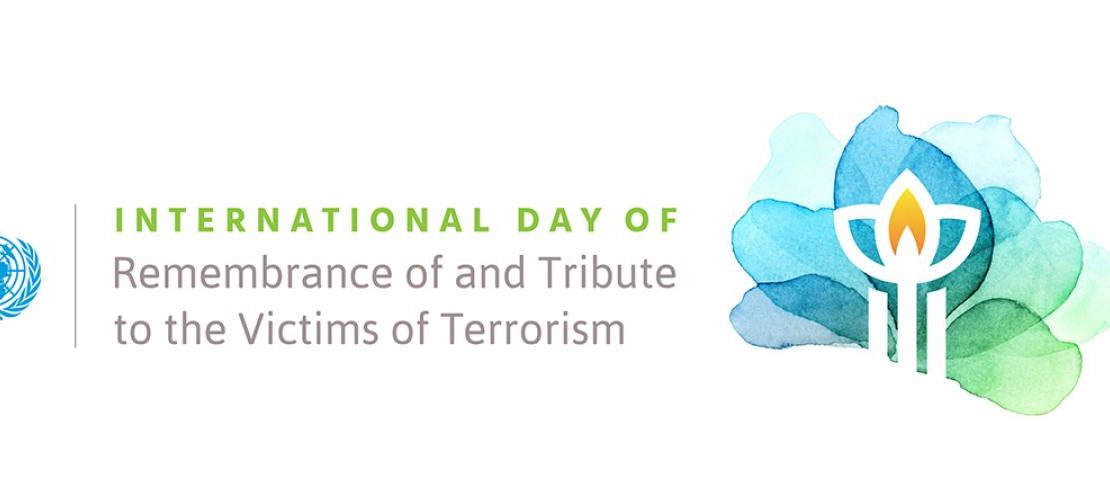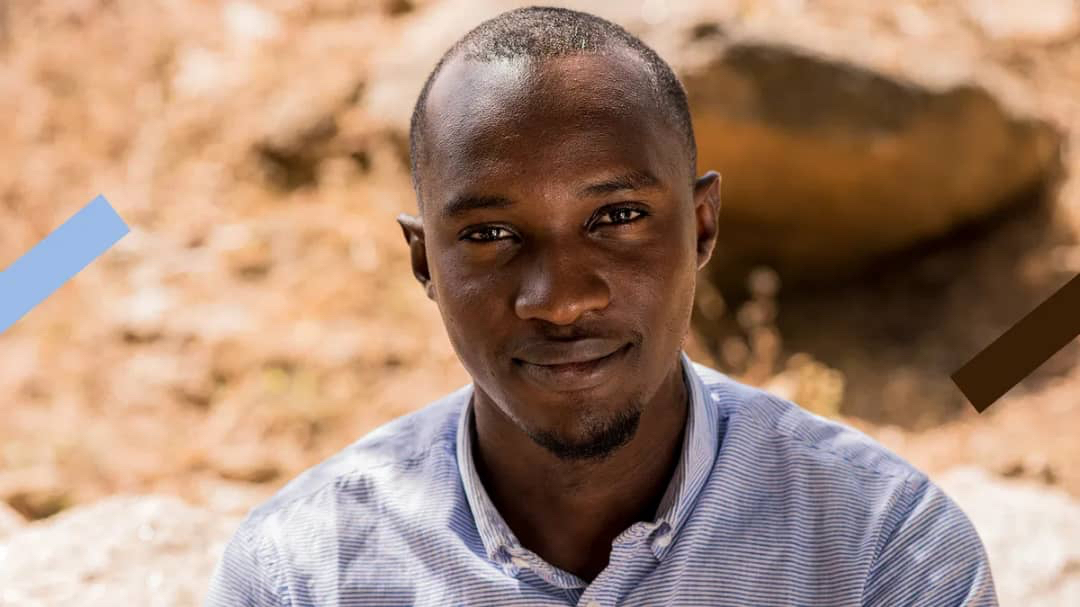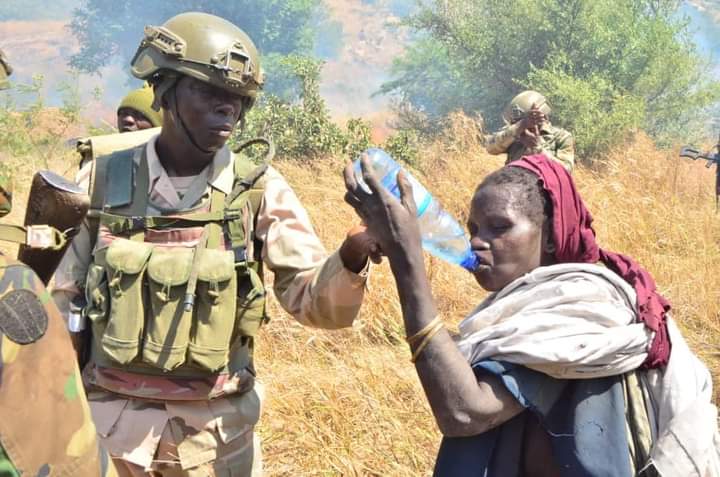International Day of Remembrance and Tribute to Victims of Terrorism
- August 21, 2024
- Posted by: Hub Admin
- Categories: Conflict Resolution, Dispute Resolution, Human Rights, Latest News & Events, Peace-building

By Altine Bello
Voices for Peace: Victims of Terrorism as Peace Advocates and Educators
The International Day of Remembrance and Tribute to Victims of Terrorism, observed annually on August 21st, serves to honour and acknowledge the experience and suffering of victims of terrorism while also reflecting on the far-reaching impact that such violence has on individuals and society. The day offers a platform to recognise the stoicism and strength of survivors, as they transform their personal pain into powerful advocacy for peace and education. The theme for this year, “Voices for Peace: Victims of Terrorism as Peace Advocates and Educators,” accentuate how the experiences of terrorism survivors, often marked by immense suffering from a place of darkness can evolve into light and build tools of reconciliation, peace, hope and forgiveness. This transformative power of victims’ experiences in promoting peace and education in Nigeria has often been overlooked. However, it is critical to affirm the role of survivors and victims as active contributors to peace-building and education. Through their advocacy, they demonstrate the potential of forgiveness and healing in the recovery process. The trauma that terrorism inflicts goes beyond immediate physical and psychological harm, leaving lasting scars of grief, depression, and sometimes substance abuse. In Nigeria, many citizens have suffered the horrors of terrorism either directly, such as through attacks by extremist groups like Boko Haram, or indirectly, through the widespread instability, displacement, horror and fear that terrorism breeds.
Although various victim support systems exist in Nigeria, such as National Emergency Management Agency (NEMA), Victims Support Fund (VSF), International Rescue Committee, Doctors Without Borders etc., including those organised by the United Nations Office of Counter-Terrorism (UNOCT) and the Victims of Terrorism Support Program, gaps in long term rehabilitations remain significant challenges. Survivors often struggle to have their voices heard and their needs addressed once the immediate aftermath of an attack subsides. The UN’s Global Counter-Terrorism Strategy plays a critical role in providing platforms for these victims to share their stories, connect with others who have faced similar tragedies, and actively contribute to peace-building.
Survivors’ Stories
In Nigeria, survivors of terrorism like Manga Usiju Ghumdia, Amina Yakubu and Esther who survived violent extremist attack in Maiduguri, the capital city of Borno State are using their experiences to raise awareness about the long-lasting impact of terrorism.
In 2014, Esther was kidnapped at the age of 17, raped, tortured and dehumanised for three years. She has been sharing her story, home and abroad, to highlight the plight of victims of terrorism Another survivor of Boko Haram kidnapping, Amina Yakubu, is also advocating for girls’ education and is constantly sharing her story to raise awareness on the dangers of terrorism and importance of victims’ support.
In a brief interview with Law Hub Digest, Manga says, “while war destroys and disrupts, peace builds and strengthens as well as restores.”
Excerpts:
How has your view of peace and conflict changed since the tragic event?
Peace is the path we take for bringing growth and prosperity to society, and the country at large. Before my traumatic experience with violent terrorist attack, peace, love and togetherness had been an anchor in our community. But after the attack, I lost that peace and I always live with fear of travelling within the country, fear to sleep every night, fear to mingle among people and fear to show love to other people.
What is your vision for a peaceful future, and how will you contribute?
When peace and harmony are maintained, things will continue to run smoothly without any delay. Moreover, it can be a saviour for many who do not wish to engage in any disrupting activities or more. In other words, while war destroys and disrupts, peace builds and strengthens as well as restores. However, I will contribute my quota by making sure I encourage the few people around me to maintain peace and orderliness every where they find themselves, teach others to do so to others, and pray for those who commit the act of violence to stop the evil act.

What strategies have you used to cope with the trauma from your experience?
I believe in the adage that says “the more you share, the more you heal.” Most importantly, I was able to engage myself in trauma healing seasons and trainings, I also had the privilege to share my story of the violent traumatic experience around the world to different audiences through the sponsorship of OpenDoor International and Ark Christian Ministry.
If you could convey a message to those who commits Acts of violence/terrorism, what would it be?
Peace is the path we take for bringing growth and prosperity to society. If we do not have peace and harmony, achieving political strength, economic stability and cultural growth will be impossible. Moreover, before we transmit the notion of peace to others, it is vital for us to possess peace within. Nigeria is the only loving country we have. We need to stop all the kidnapping, killing, looting and placing cause on our country Nigeria. Let’s restore the glory of the nation by making peace with all men.
What motivated you to become an advocate for peace after your experience?
I have seen the two sides of life, and I have come to a consensus that It’s better for one not to go where the path may lead, go instead where there is no path and leave a trail. Our greatest glory is not in never failing, but in rising up every time we fail. Always do what you are afraid to do. Peace cannot be achieved through violence; it can only be attained through understanding. And I will love everyone to have that understanding.
All these stories of pain and hope exemplify the journey from being victims of terrorism to becoming advocates of peace and education. After enduring brutal attacks, they have transformed their pain into advocacy for education and reconciliation, sharing their stories on global stages.
Their individual stories challenge extremism by promoting universal values of human dignity, tolerance, and education. The contributions of these survivors extend beyond their personal experiences, as they work to foster a deeper understanding of the true costs of terrorism. Their advocacy is a compelling tool for change, breaking down stereotypes and fostering empathy within communities.
Through public speaking, media engagements, and educational outreach, they challenge the narratives of hate and violence promoted by extremist groups. Education is a critical component of this advocacy, as victims-turned-educators seek to make change by teaching the values of tolerance and peace.
In classrooms, community centres, and international platforms, victims of terrorism have become key players in the fight against extremist ideologies. Their efforts are not limited to formal educational settings; they engage with broader audiences through workshops, conferences, and media campaigns aimed at dismantling the myths used by terrorist to recruit vulnerable individuals.
The courage and resilience demonstrated by victims of terrorism serve as powerful lessons. As this year’s theme emphasises, survivors have the potential to transform their tragedies into impactful messages that promote peace and reconciliation. By sharing their stories, these victims help the world understand the far-reaching human costs of terrorism and inspire efforts to create a more peaceful and just global community.

The International Day of Remembrance and Tribute to Victims of Terrorism reminds us of the importance of supporting the ongoing journey of survivors toward healing and peace. It reaffirms the need to listen to their voices, ensuring that their experiences contribute to a future where empathy, understanding, and peace prevail over hatred.
The stories of victims like Manga, among others, remind us that from the depths of tragedy, hope and strength can emerge. Their resilience and advocacy demonstrate that while terrorism seeks to divide and destroy, the human spirit, grounded in the pursuit of peace and justice, can rise above such adversity. As we honour the victims of terrorism amongst us, let us continue to support their efforts, ensuring that their voices are not only heard but serve as catalysts for lasting change in the fight against terrorism and in the quest for a more peaceful world.
